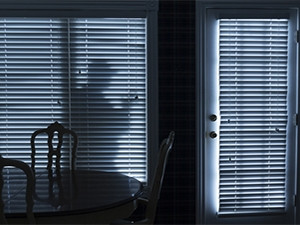
Last week's court ruling, vindicating the State Security Agency's (SSA's) use of a cellphone jammer in Parliament earlier this year, paves the way for the agency to disrupt communications under the guise of national security.
The use of a cellphone jamming device in Parliament during president Jacob Zuma's State of the Nation Address (SONA) in February - which caused an outcry by opposition Members of Parliament - was initially justified as a measure to stop drones from flying over Parliament. This "excuse" was rubbished by commentators, who argued the jammers that block phones cannot stop drones from flying.
However, it has now emerged the agency erroneously left the jamming device switched on after using it to prevent the possibility of a bomb being remotely detonated before the start of SONA. This revelation is contained in a majority judgement handed down late last week by the Western Cape High Court.
Primedia, the South African National Editors' Forum, the Right2Know (R2K) Campaign and the Open Democracy Advice centre took the state security minister, the speaker of the National Assembly and the chairperson of the National Council of Provinces to court over the use of the jammer, and limitations on broadcasting.
Dodgy activity
The media bid, to prevent future jamming occurrences, failed, with two of the three judges finding the jamming was lawful. The SSA, which had promised to investigate the incident and take steps against the guilty party, welcomed the ruling as vindicating its role. This, it says, allows it to own and deploy various devices to counter certain threats in major national and international events, activities and occasions to ensure maximum security.
The judgement, written by justice Daniel Dlodlo, found the use of a jamming device was "entirely justified" and lawful. "The employment of any means (including the use of signal disruptors) to protect the president, deputy president and dignitaries against the potential threat (real or perceived) of a remote controlled explosive device (whilst still outside the chamber and prior to the start of SONA) under the circumstances...was, in my view, entirely justified and was not unlawful."
Secrecy and securitisation organiser at R2K, Murray Hunter, says the SSA essentially used a "back door" to justify jamming, and the agency could use another back door to carry out other electronic security actions.
Hunter notes, for example, the SSA could deploy jammers to protect blue light brigades as they travel along SA's roads, which would disrupt cellular communications as the convoy passes by other motorists.
The SSA has already been accused of illegally monitoring electronic communications, notes Hunter. He says there is almost certainly covert spying going on, although he is not sure the jammer formed part of such security measures, or was really a mistake.
Hunter notes the agency said in February that the use of the jammer was based on a threat assessment that could come from the Economic Freedom Fighters. This, he says, indicates the agency was gathering intelligence through covert means prior to SONA.
Spying on citizens is commonplace in the US, with former National Security Agency technical director William Binney recently saying the agency is collecting data on everyone in the world, and is tapping into global fibre networks. He previously said governments globally are focusing on bulk collection of data, and establishing agreements between them to exchange data and share the results of analysis of that data.
National threat
The SSA told the court it used the jammer to eliminate the possibility of a bomb being set off remotely before the start of the address, and that the device was accidentally left switched on.
In addition, the judgement found the Intelligence Services Act allows the agency to acquire and use signal disrupters. "I am of the view, in any event, that it would be wrong that this court denies the agency the use of the devices when circumstances demand same be used in order to counter any threat or potential threat to national security."
The judgement notes the Independent Communications Authority of SA allows the National Security Cluster Department - which includes the police, correctional services and Scorpions - to fall under "alternative" legislation so they can carry out their duties. The regulator also exempted the agency from needing a radio frequency licence, it adds.
In her dissenting judgement, justice Kate Savage argued the use of signal jamming in the house without the specific permission of the speaker or chairperson was unlawful, even if it was accidental.
Share